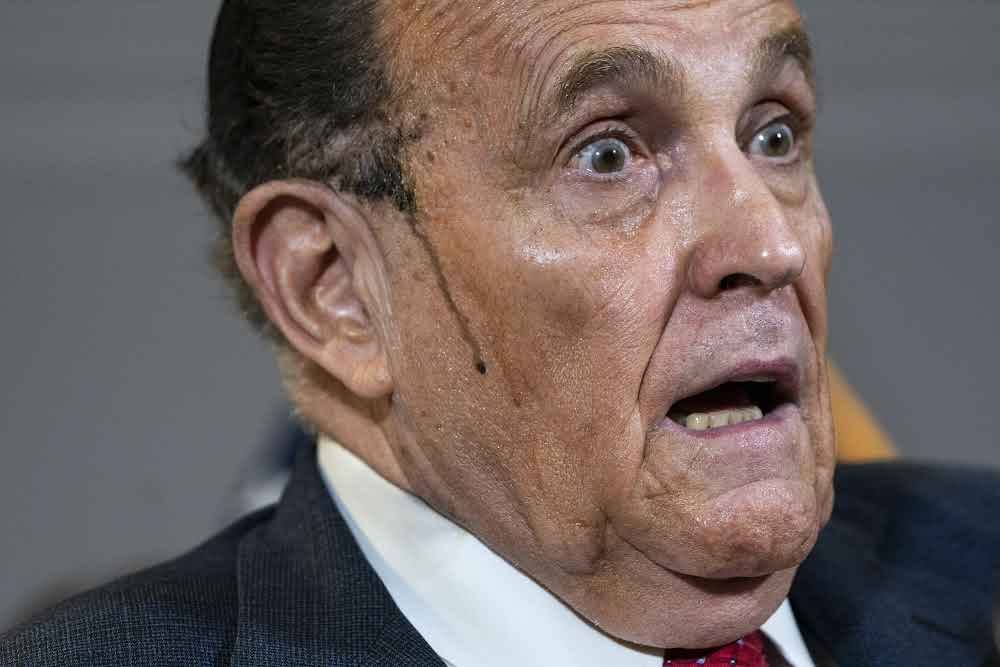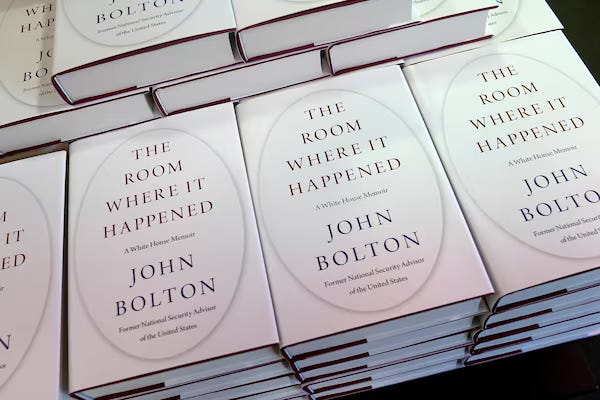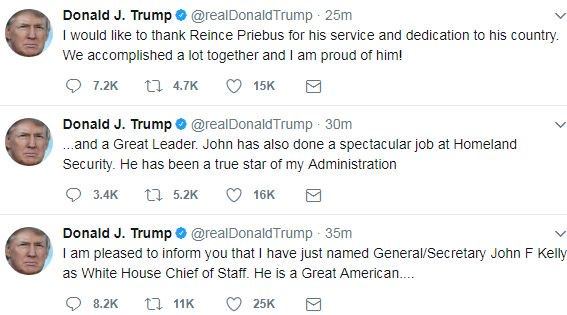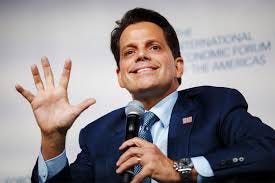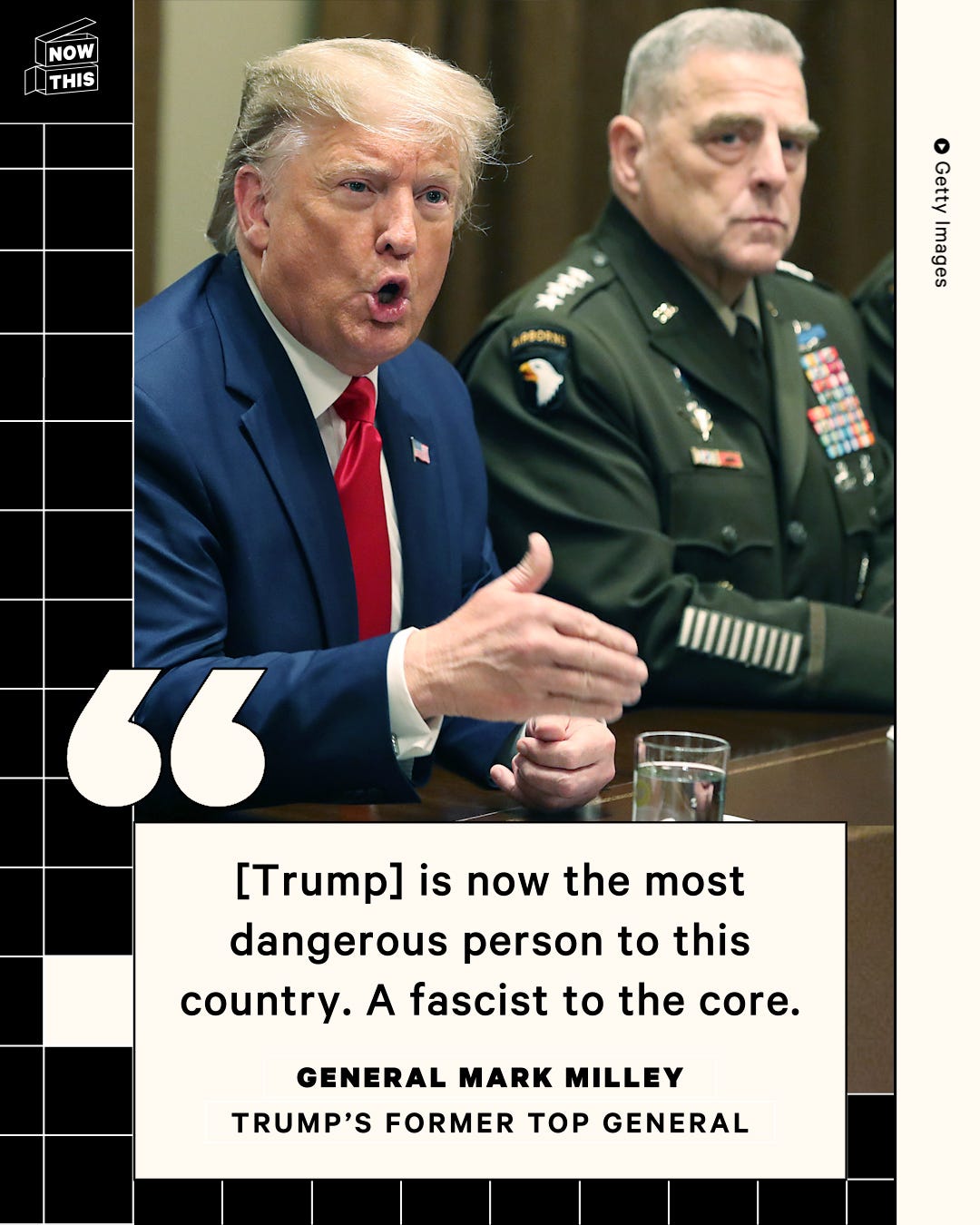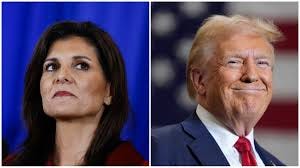As a strategist who has worked for decades on healthcare, I've learned there are three ways healthcare administrators, CDC-types, physicians, teaching hospitals and nurses look at their jobs.
Populations, people, and persons. The three P’s are three lanes of approach.
Politics is the same. And to a certain extent, so is marketing.
Let’s talk about populations first.
Have you ever gone to a medical center and met with the head of Neurology? I have, twice, in two respected hospital systems when we seeking a diagnosis for my husband’s illness. Do these heads of departments care about you?
No. They see you as a population. Their focus is on generalizing symptoms to confirm a pre-existing hypothesis. You are nameless. Faceless. A point in a data set.
This is also the political approach of the current U.S. administration. They are collecting information en masse to include DOGE and now Planatir partnerships (search Planatir and the fucking nut that is their CEO, Alex Karp…). Is there too much data to make sense of anything? Yes, perhaps now, but not tomorrow. So if you’ve voted a certain way (that is easily assessed by connecting your behaviors that have been monitored for years), have a certain income level (that’s IRS), give to certain causes (ditto), have a certain level of education, you are now a population. A nameless, faceless libtard or cuckservative.
BTW, I had to use an online dictionary to find a word that was the opposite of libtard other than Trumper. There weren’t many, which should tell you something about respect.
The population approach is not new. Actually, Harrah’s laid the seminal foundation with their statics work on casino gamblers about 25 years ago. Customer Relationship Management came out of their population approach, which ironically evolved to an individual person approach. Marketing at scale, which is now CRM, is all about finding the persons in behavioral and psychographic (what people believe rather than how they behave) populations.
Anyway, data management, or rather message management, has matured to include all of us – you, me and everyone we know – but now it’s not about consumer goods and services. Its primary function is to manipulate our minds to vote a certain way or support an ideology.
Or, you could categorize it as intelligent convenience, like mentioning out loud the words “penny loafers” and suddenly you see social ads for penny loafers.
Who buys penny loafers anymore? Weirdos.
The smoking gun of election interference is old hat, buried deep in the dirt in a box marked Jumanji. It was opened, briefly shut, and reopened. What is different is the massive scale at which interference can be done now, on all the comms platforms, domestically and internationally, and how massively massive it is.
Which is why we can’t possibly imagine how anyone can come to a different conclusion than we have with what we obviously see, hear and understand. Frustration for what seems like other people’s ignorance is a very special hell.
Remember the big Cambridge Analytica scandal in 2018? Bahahahahahaha how adorable! Clutch my pearls and let me hold your beer, Republicans!
To refresh, here’s what happened. It’s a master class in modern day marketing. (I really hate calling myself a marketer BTW specifically because of shit like this):
A researcher at Cambridge University created a Facebook app that was a personality test based on OCEAN (you’ve seen these tests, kind of like “What Muppet are you?”): Openness, Conscientiousness, Extraversion, Agreeableness and Neuroticism are numerically scaled.
270,000 persons downloaded the app. The app collected their data AND their friends’ data. (That is illegal, but dare I say, start reading the fine print before you click
“I ACCEPT.”) People typically hang with cohorts like themselves. Of that 270,000 download, 87 million profiles were created.
So target segments were created for propaganda purposes, such as “neurotic introverts concerned about immigration” and “angry conservatives feeling left behind.”
Then the micro groups and their friend pools were targeted with messaging gasoline that stoked their fears.
Facebook was fined $5billion, which sounds like a lot, but they had $70billion in revenue that year. The money went into the general U.S. budget.
Chump change all around. Maybe it was a deliberate test to see if anyone cared? Cambridge Analytica is long gone. There are stranger conspiracy theories involving Mark Zuckerberg.
Facebook did what Facebook does. That’s just targeting, re-marketing and doing it all on repeat.
Populations are made up of people. People are the sub-groups of populations.
Back to the healthcare analogy. Can you blame the department heads of neurology, who took time out of their days to meet with me and my husband for being so fucking uninterested in anything we said? Did they see us as living breathing scared persons, or did they see a representative of the population of the terminally ill club? Subgroup, Lewy body dementia? What’s the point of asking about symptoms? People in this club all have symptoms that are essentially the same, even though I personally believe that is not entirely true, and there are correlations to uncover.
What I loved about Obama and Biden is that they lived in and recognized all three groups: populations, people and persons. Joe especially would see persons, and connect with them. He also aggressively pursued legislation that helped people, not just populations.
But when he spoke of his accomplishments, he spoke about populations, and people who were not in the subgroups couldn’t resonate. Joe was truly masterful at considering all three, but the Democratic party couldn’t necessarily find the right words to communicate to all three simultaneously.
I remember a press conference where some snot reporter asked a question that really irritated Joe. I don’t remember the question (it’s 2025 and we still can’t hear press conference questions, which is ridiculous), but Joe’s intense answer was “Because that would start World War Three.”
I miss him so much. I’d take coma Joe any day. His decline was actually much slower than the current “right before our eyes” president who people say smells, like decay.
Leaders often are perceived at sucking because they have population power while individuals only think, “What’s in it for me.” Persons are susceptible to group think, group think is easily engineered, but in the end, the default always cascades to “me.”
If leaders are inherently bad or evil, then people are reinforced to be bad or evil by way of targeted omni-channel marketing, which is colloquially called “echo chambers.” Persons that you know are mostly good, because you know them as just that. Persons. Individuals who can be kind, interesting, giving, familiar and helpful. Even if both you and they are group thinking bad thoughts about each other.
Enter clinical psychology, which is a hell of a variable, especially if it hits a person who has population power. The definition of a sociopathic person includes emotional volatility, refusing to control their own wrongdoing, being impulsive and reactive, and having a lack of empathy for other persons or people. Add narcissism, and you have a sociopath that externalizes their self esteem.
Gee, who would come to mind here…? Wait, the guy I’m thinking of barely recognizes populations unless he can use them as assets and discard them later. He discards persons, too. In fact, the irony… he has a whole people of discarded persons!
Chat GPT, do your thing!
Michael Cohen (Former personal attorney)
Fell out: 2018
Why: After being raided by the FBI and later pleading guilty to multiple charges including campaign finance violations related to hush money payments on Trump’s behalf.
Trump’s response: Called him a liar and “not very smart.”
Aftermath: Cohen turned into a vocal critic and testified against Trump before Congress.
Rudy Giuliani (Former attorney and key figure in 2020 election denial)
Fell out: 2021–2023
Why: Legal liabilities stemming from election interference efforts and defamation lawsuits (e.g., Dominion, Ruby Freeman).
Trump’s response: Reportedly refused to pay Giuliani's legal fees; aides said Trump grew tired of his erratic behavior.
Aftermath: Giuliani is facing massive legal and financial troubles and was recently disbarred in New York (2024).
Steve Bannon (Chief strategist and campaign manager)
Fell out: 2017–2018
Why: Criticized Trump’s family in Fire and Fury, calling Trump Jr.’s Trump Tower meeting with Russians “treasonous.”
Trump’s response: Called him “Sloppy Steve” and claimed he had “lost his mind.”
Aftermath: After jail time, later partially reconciled; Trump pardoned Bannon in 2021, but they remain at arm’s length.
Jeff Sessions (Attorney General)
Fell out: 2018
Why: Recused himself from the Russia investigation, which led to Mueller’s appointment.
Trump’s response: Ruthlessly and publicly mocked him for “disloyalty.”
Aftermath: Trump campaigned against Sessions during his 2020 Senate run in Alabama.
John Bolton (National Security Advisor)
Fell out: 2019
Why: Policy disagreements, especially on foreign intervention; later published a scathing memoir.
Trump’s response: Called him a “disgruntled boring fool who only wanted to go to war.”
Aftermath: Bolton remains a sharp Trump critic.
Mark Meadows (Chief of Staff)
Fell out: 2022–2023
Why: Although loyal during the January 6 insurrection, Meadows reportedly cooperated with prosecutors.
Trump’s response: Subtle distancing; stopped publicly defending him.
Aftermath: Meadows' legal position is still murky, and he's no longer part of Trump’s tight circle.
Hope Hicks (Communications Director)
Fell out: 2021–2022
Why: Distanced herself after January 6, expressing regret in testimony.
Trump’s response: No public feud, but she’s no longer a visible supporter or aide.
Aftermath: Avoids the spotlight; considered a quiet exit rather than dramatic fallout.
Omarosa Manigault Newman (White House aide, TV personality)
Fell out: 2017
Why: Fired from White House, later wrote a tell-all book.
Trump’s response: Called her a “dog” and “wacky.”
Aftermath: Public feud continued in media and courts.
Reince Priebus (First Chief of Staff)
Fell out: 2017
Why: Marginalized by other White House factions, like Bannon and Kushner.
Trump’s response: Fired him via Twitter.
Aftermath: Returned to GOP politics but not part of Trump’s future plans.
William Barr (Attorney General)
Fell out: 2020
Why: Declared no widespread election fraud and refused to support Trump's post-election narrative.
Trump’s response: Accused him of betrayal and cowardice.
Aftermath: Barr has since become a vocal critic of Trump’s legal jeopardy and fitness for office.
Anthony Scaramucci (White House Communications Director—for 11 days)
Fell out: 2017
Why: Wild media appearance and backstabbing of colleagues.
Trump’s response: Fired swiftly.
Aftermath: Became a harsh public opponent and frequent media commentator
Don McGahn (White House Counsel)
Why: Refused to carry out Trump’s order to fire Mueller. Later testified against him.
Matthew Whitaker (Acting Attorney General)
Why: Briefly loyal but fell out of favor after being viewed as ineffective.
Rex Tillerson (Secretary of State)
Why: Called Trump a “moron.” Trump later called him “dumb as a rock.”
James Mattis (Secretary of Defense)
Why: Resigned over policy disagreements; later publicly condemned Trump’s leadership.
John Kelly (Chief of Staff)
Why: Once seen as a stabilizing force; now openly critical of Trump.
Elaine Chao (Secretary of Transportation)
Why: Resigned after January 6; Trump later insulted her and her husband, Mitch McConnell.
Betsy DeVos (Secretary of Education)
Why: Resigned after Jan. 6; criticized the administration’s handling of it.
H.R. McMaster (National Security Advisor)
Why: Disagreed with Trump on foreign policy; ousted.
Dan Coats (Director of National Intelligence)
Why: Clashed with Trump on Russia and North Korea; removed.
Mark Milley (Chairman of the Joint Chiefs of Staff)
Why: Trump has since attacked him viciously, even suggesting execution.
Brad Parscale (2020 Campaign Manager)
Why: Demoted after weak rally turnout in Tulsa; suffered mental health crisis.
Corey Lewandowski (2016 Campaign Manager)
Why: Sidelined after scandals and erratic behavior.
Paul Manafort (2016 Campaign Chairman)
Why? Convicted of multiple crimes; Trump distanced but later pardoned him.
Roger Stone (Longtime advisor)
Why? Pardoned, but Trump kept him mostly out of the spotlight after January 6.
Sarah Huckabee Sanders (Press Secretary)
Why? Left on good terms, but now keeps her distance. Trump has both praised and jabbed at her. Now governor of Arkansas, he refused grant her request for FEMA aid.
Kayleigh McEnany (Press Secretary)
Why? Criticized by Trump in 2023 for not defending him strongly enough on Fox.
Sean Spicer (Press Secretary)
Why? Humiliated repeatedly, especially over inauguration crowd size lies.
Mitch McConnell (Senate Minority Leader)
Why? Major ally during presidency, now loathed by Trump.
Chris Christie (Former NJ Governor)
Why? Helped prep Trump for debates; later turned critic and ran against him in 2024.
Bill Barr (Attorney General)
Why? Mentioned above, but also notable for Trump’s repeated recent attacks.
Nikki Haley (UN Ambassador)
Why? Once loyal, later challenged Trump in 2024 primary. Called a “birdbrain” by Trump.
Mark Esper (Defense Secretary)
Why? Fired after election for resisting use of military against protesters.
Dr. Anthony Fauci (COVID Task Force)
Why? Trump grew hostile as Fauci contradicted him publicly.
Dr. Deborah Birx (COVID Coordinator)
Why? Thrown under the bus for "not pushing back" but also criticized by Trump.
My point in all of this is that as a marketer, I have been trained in understanding people. People, meaning, those that share psychological and behavioral tendencies. All of the persons above make for a rather influential group of people if they got their collective act together. I’d love to work with them on a common objective.
From a U.S. point of view, legislation is based on populations and is very hard to pass. Do most individuals in the United States understand the empathetic implications of legislation? I think not, which explains a lot. It’s why governing on a national level is so hard. It’s why decisions that impact domestic and international populations are nearly impossible to make, and carry great personal heaviness for most presidents.
Every one of them comes out of this meat grinder looking old.
It’s why war is horrible. It’s why everyone complains about the value of American healthcare, because it seems like only nurses care. And it is why we have lost our ability to trust, because politicians flip back and forth between talking to populations and people, which further evolves into political hate because they’re not talking to or relating directly to you. The person.
How scary, and prescient.








